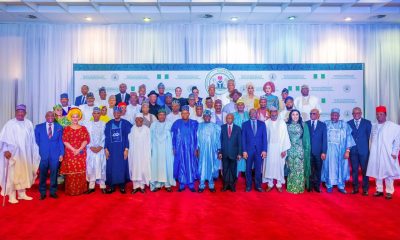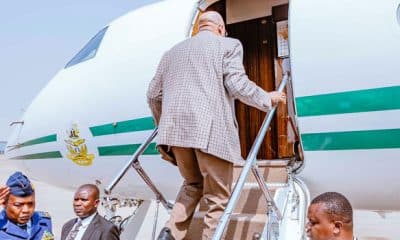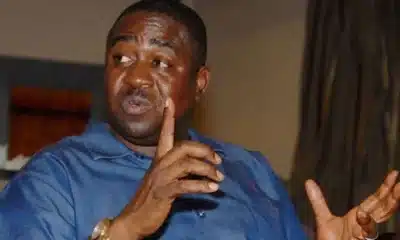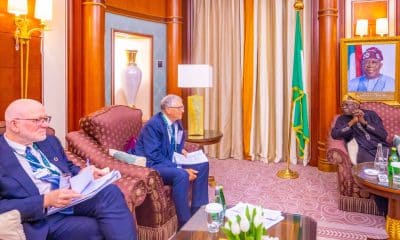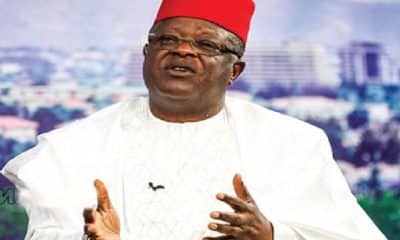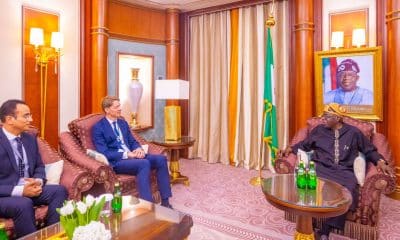Nigeria News
Nigeria Competing With Russia In Energy Supply To Europe – Tinubu
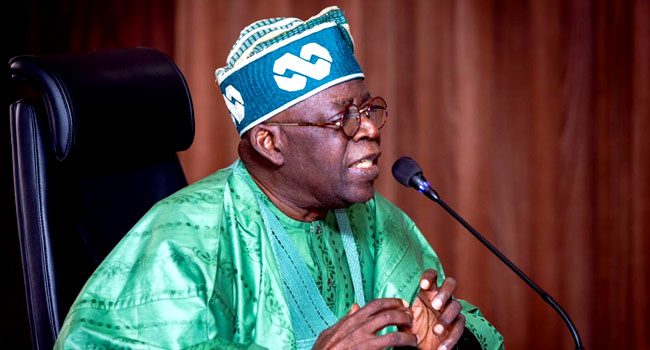
On Tuesday, President Bola Tinubu underscored Nigeria’s ambition to diversify its economy by engaging in a “friendly competition” with Russia in supplying energy to European markets.
He emphasised that this diversification could be achieved through natural gas and green energy initiatives.
Tinubu stressed the importance of partnerships for a new green economy in Nigeria and other African nations, asserting that effective efforts against climate change require collaborative endeavours.
He emphasized the need for a cooperative approach, arguing that developed nations have been slow to take necessary actions for too long.
In a CNN op-ed titled ‘Africa can become the world’s green powerhouse,’ Tinubu called on developed countries to fulfil their commitments by making significant contributions to the Loss and Damage Fund and honouring the $100 billion annual climate financing pledge.
These remarks were made in conjunction with the conclusion of the nearly two-week COP28 World Climate Action Summit in Dubai, UAE. However, the summit extended into overtime on Tuesday without reaching a final agreement. CNN reported that countries remained divided, particularly on the issue of phasing out fossil fuels.
The prolonged negotiations followed days of discord among participating nations. Observers revealed that Saudi Arabia and Russia were among several countries advocating for COP28 to focus solely on reducing climate pollution and avoiding discussions on the phasing out of fossil fuels.
The Organisation of the Petroleum Exporting Countries—of which Nigeria is a member sent a letter urging its 13 members, including Saudi Arabia and OPEC+ countries, to “reject any mention of fossil fuels in the final summit deal, warning that ‘undue and disproportionate pressure against fossil fuels may reach a tipping point.'”
On Tuesday, the final version of the COP28 agreement omitted any reference to the phased reduction of fossil fuels, sparking frustration among various nations and advocates.
President Bola Tinubu, reiterating his position on the economic disparity, emphasised that despite contributing minimally to the issue, developing nations bear the brunt of its consequences.
Having attended the initial sessions of the event from November 30 to December 3, Tinubu expressed that concerns about security threats, displacement of populations, environmental degradation, and other collateral impacts of climate change were at the forefront of his mind during his involvement in Dubai, United Arab Emirates.
He noted that Nigeria has faced significant challenges, including the repercussions of the COVID-19 pandemic, short-term difficulties arising from economic reforms, and the ongoing process of unifying foreign exchange rates. Despite these obstacles, Tinubu affirmed the nation’s unwavering commitment to building a better and cleaner economy.
“To uphold our legally binding commitment to a cleaner world, Nigeria launched the Nigerian Carbon Market Initiative at COP28 by joining the African Carbon Market Initiative,” he revealed.
The Nigerian leader emphasised the nation’s dedication to its promises, citing decisive actions such as enacting the Climate Change Act and committing to achieve net-zero emissions from 2050 to 2070.
“Africa’s most populous nation has successfully mobilised tens of thousands of youths nationwide to plant 250,000 trees annually to honour a pledge to plant 25 million trees by 2030 as we build our great green wall to fight back against encroaching desert across the northern region of our nation,” he stated.
He noted that Nigeria’s current priority is the vigorous exploration of its abundant wind and solar resources. Despite this focus, Tinubu pointed out that transitioning away from fossil fuels, which currently serve as Nigeria’s economic mainstay, will pose significant challenges.
He said, “While in Berlin last month at the G20 Summit, I announced Nigeria’s commitment to develop blue and green hydrogen capacity for international export.
“In conversations with Middle Eastern oil producers, I also solidified this commitment.
“We now seek to mobilise private capital with support from initiatives like the Climate Finance Leadership Initiative and the new US and EU global infrastructure programs.”
He also pinpointed the European Union’s Global Gateway program and the US Government’s Build Back Better World initiative as potential avenues that Nigeria aims to explore in its transition to cleaner energy.
“We are also looking to diversify our economy by engaging in friendly competition with Russia in energy supply to European markets. We can do it with natural gas and through green energy.
“This is why we are investing massively in both. Batteries for hire could help Nigerians ditch their generators. But the time for watching and waiting is over.
“Developed nations must honour commitments in the form of significant contributions to the Loss and Damage Fund and the $100bn annual climate financing pledge. It is time to seize the moment,” the President concluded.

